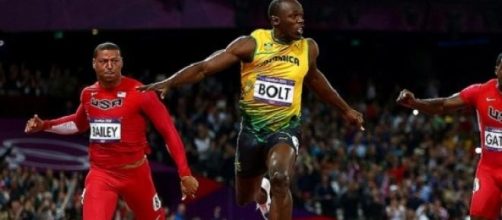Last year's hot shot over the short sprints, Justin Gatlin has been rewarded for his exceptional performances on the tracks of the world by the American multinational sports' company Nike, with a new sponsorship deal. Considering that he ran seven of the top ten fastest 100m times for 2014 and the top two 200m times, some would say that he is deserving of the new backing. Yet, the 33-year-old American sprinter divides the sports of athletics, with some saying that he has served his doping bans and is therefore free to compete, while many more can't forget his past misdemeanours and bans, no doubt hinting that the only way to free the sport of doping cheats is a lifetime ban for those caught out.
Gatlin's times and dominance last season make him the obvious favourite going into this year's major competitions, especially August's World Championships in Beijing, where few would bet against him achieving a double gold in China. His determination to come back after the lengthy bans during his career has propelled him right back to the very top of the sport, something that Britain's Dwain Chambers was not quite able to achieve after his own ban had been served.
Yet, those two doping bans that he served which ensured his exclusion from competition from 2006 to 2010, still rankle with many within the sport who do not consider that his return should be something to be worthy of their praise and acclaim.
To hold him up as a figurehead for the sport is also considered to be providing mixed messages, at a time when the sport is fighting for its life against the drug cheats and being looked on with suspicion from people outside the sport itself.
Former World Indoor and Olympic relay champion, Britain's own Jason Gardener, has echoed the thoughts of many when asked to comment on Gatlin's new deal, telling the BBC that it didn't surprise him but that it was "another bad message being sent by our sport." He also cited the evidence that suggests that perennial cheats gain a form of 'residual' benefit that continues to aid their performances, even after they have stopped taking the substances involved.
His teammate from their 2004 Team GB success, Marlon Devonish was mainly in agreement but suggested that if people don't like the outcome (of allowing former cheats back into the sport after their bans), then they should "change the rules."
Germany's Olympic discus champion Robert Harting went further in his non acceptance of Gatlin's re-integration into the sport, when asking to be removed from last year's IAAF Athlete of the Year shortlist if Gatlin was also included on it. In explaining his decision he stated that "it's insulting for me and my fans" (to be on the same list with Gatlin).
There are many who have also questioned how Gatlin has been able to improve his times (he set a new 200m personal best last year) in his advancing years, when most sprinters have already peaked.
That argument will continue to rumble on, although other sprinters still continue to run quick times into their 30s, so there are some precedents, although commonly they see their times begin to slide marginally.
No doubt there will also be many who (secretly) hope that Gatlin's quest for gold in Beijing is thwarted by Usain Bolt, especially if the larger than life Jamaican can regain his top form this year. However, global sportswear producers such as Nike need to ensure that they have high profile athletes on their books, as they continue their marketing war with the other major companies such as Adidas, Puma and the rest of the big hitters.

